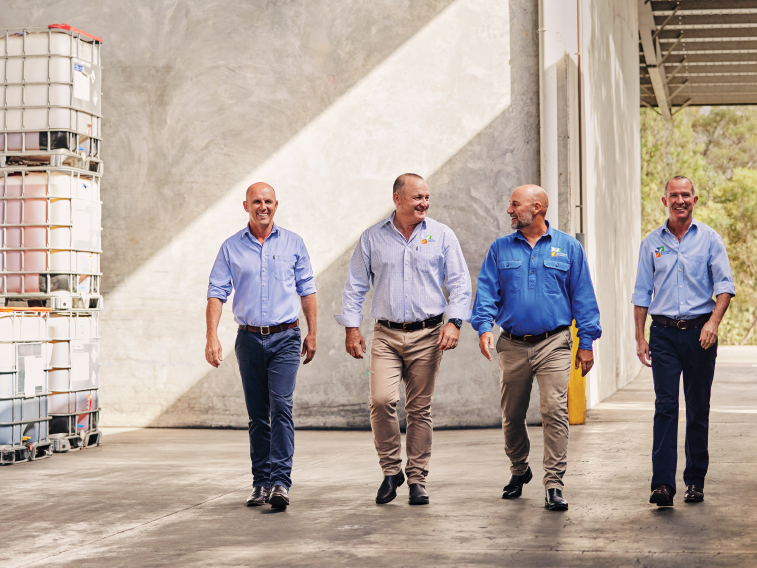The latest NAB Regional & Agribusiness webinar provides insights on the Australian & Global Economies, and a regional and rural property update. Watch the webinar here.


Playing to its less-is-more strengths has been key to winning business for the small wonder that is Australis Crop Protection.

Tim Capp and Peter Foreman understood exactly how they could set themselves apart when they launched Australis Crop Protection 12 years ago.
“We focus on smaller companies; we offer them the equivalent – or better – service and product than what our competitors are offering,” Peter explains.
“We compete by not compromising on the quality of our products, but at competitive prices,” Tim adds.
To achieve this, the two founders, who have decades of experience in the agricultural chemicals sector, trimmed the fat off the traditional model of supply, focused on core competencies and excelled at following through.
It’s a model that’s worked. The company has a stellar reputation among customers and suppliers and remains independent in an industry dominated by large multinational players.
Since the business began, Paul Smith and Graeme Champney have come on board. And while head office is now in Brisbane, Australis has kept its banking with NAB in the regional agribusiness hub of Moree where the company originated.
Initially lacking the capital to set up large-scale warehousing for importation and distribution, Tim and Peter turned that into a competitive advantage. A leaner, more agile company could bear down on the costs that matter, while salespeople could spend more time on the road instead of a central office.
“We weren’t doing it on the smell of an oily rag, but we had to have very finely tuned resources and cash flow,” Peter says.
Non-core services such as accounting, marketing, and IT are outsourced, generally to locally owned and operated businesses.
“We try to go with privately owned operators because we believe they’ll give us the same level of service and support that we give our customers – it’s more personalised,” Peter says.
From inception, Australis has operated on a remote working model, well before the working-from-home trend became the norm, and a distribution model that doesn’t tie up capital in fixed assets.
“We do contracted warehousing rather than set up all this infrastructure ourselves and then be locked in one place,” Peter says.
Australis imports its chemical raw materials in high volumes, and deals with large quantities of foreign currency, but prefers to keep things simple using the NAB Connect platform.
“We don’t want to be trading currency, we don’t want to play around with foreign exchange,” Peter says. “For us, it’s purely transactional.”
Tim and Peter say the sophistication of NAB’s regional banking centres made it an easy choice to partner up when launching an agricultural business with complicated cash flow and trade finance requirements.
“We’ve been with NAB from the very start. We went to them straightaway and said, ‘Look, we want to bank with you’,” Peter explains.
“We wanted to deal with a bank who did have an agribusiness focus. Who truly understood agriculture in Australia, and the challenges of droughts, and the highs and lows. A bank who understood the capital intensity of some of these bigger industries, like cotton and chemicals.”
While Australis has plenty of momentum, the company focuses on sustainable growth, rather than riding the boom-and-bust of commodity and crop cycles.
“We’re pretty conservative, and we’re patient,” Peter says.
“We were never in a race to get big, instead growing at a pace that was manageable. We’d tell others, ‘Don’t be impatient, don’t take unnecessary risks’.”
© National Australia Bank Limited. ABN 12 004 044 937 AFSL and Australian Credit Licence 230686.